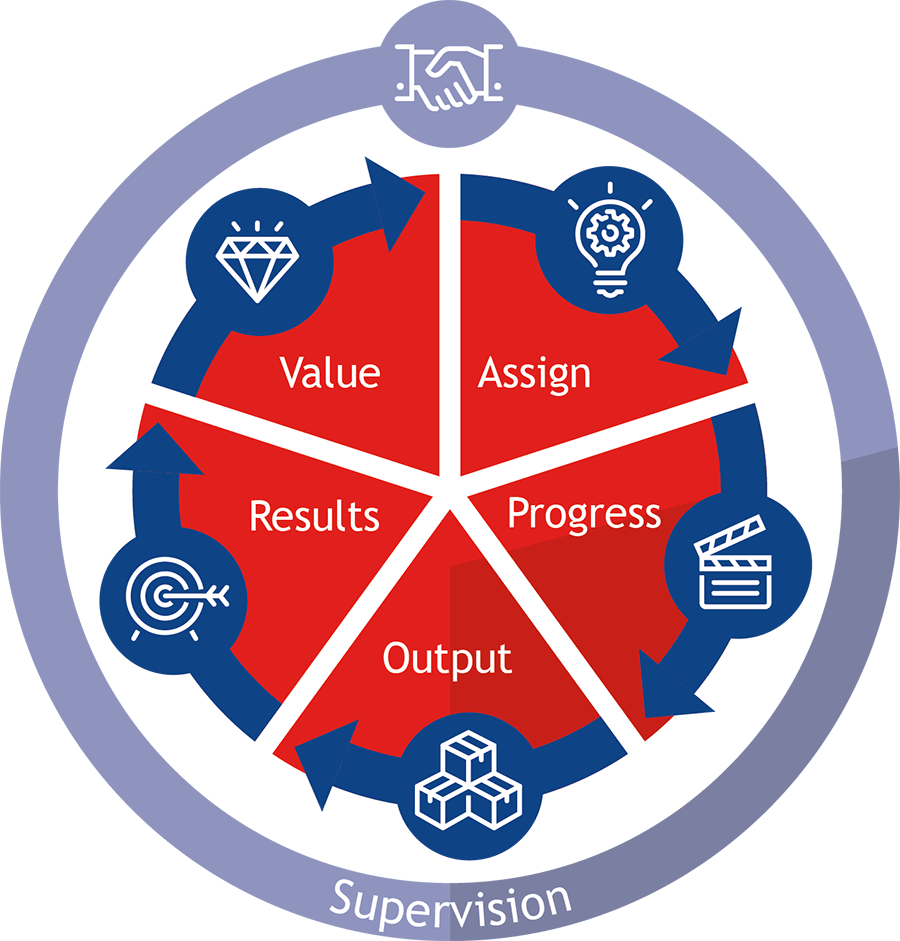VAPORS

Results
'Results' is the fifth stage of the business transformation model and is the translation of the use of the deliverables from the ‘Output’ stage by the company. Results can still be gained long after the project has ended and answers the question of WHY? Results should always be tested with the strategic intent: does the result add value to the strategic direction, or is a realignment of the strategy necessary?
Output
‘Output’ is the fourth stage of the business transformation model and is all about the creation of the project deliverables. In this stage, the output of the project(s) and the quality of the output are most important and answers the question of WHAT? Output is the first visible and measurable output of a business transformation process.
Progress
‘Progress’ is the third stage of the business transformation model and is all about the execution of projects. In this stage, the strategic direction supports the execution to implement and answers the question WHEN? Progress includes both projects that focus on realising specified deliverables, and initiatives to change behaviour and routines in operational processes. To transform the business from the old to a new way of working.
Assign
‘Assign’ is the second stage of the business transformation model and is all about organising, empowering people and funding initiatives to realise the earlier determined ‘Value’ objectives. It is the translation of strategic initiatives into portfolios and programs, and answers the question of How? With the establishment of portfolios and programs, strategic activities will be grouped, resources and direction assigned and planned in time.
Value
‘Value’ is the first stage of the business transformation model and can be described by Focus (are we doing the right thing). It is the translation of strategic initiatives into measurable values and answers the question of Why? Value activities are all about getting commitment of leadership and stakeholders behind the Value. This needs to be built, continuously monitored, maintained and lived by the persons involved.
Supervision
‘Supervision’ is the last stage of the business transformation model and comprises all other stages. Supervision is part of each other stage and answers the question of WHO? Delegating supervision to the levels closest to the responsible persons to implement the tasks at hand guarantees the best commitment. Supervision enables control over your business transformation initiatives and the ability to take corrective actions as soon as possible.
